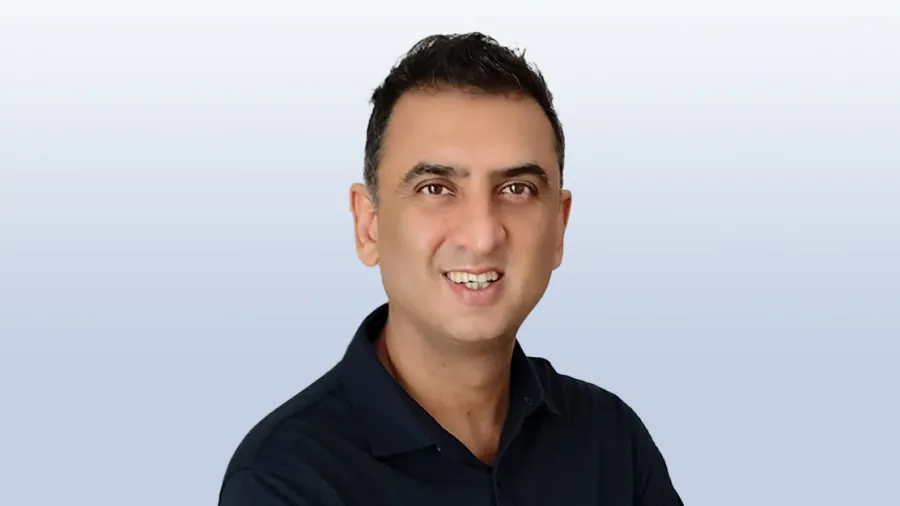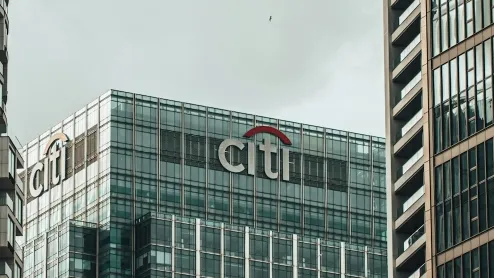
UNO Digital Bank sets its sights on being Filipinos' top virtual bank
CEO Manish Bhai said they want to be first for their Filipino customers’ financial needs.
For the Philippines’ newest digital-only lender UNO Digital Bank, there’s no other place they want to be but at the top.
“We want to be number one when it comes to impact on financial inclusion, number one in terms of lending balance sheet, number one in terms of innovation, number one in simplicity and customer experience,” Manish Bhai, CEO of UNO Digital Bank, told Asian Banking & Finance in an exclusive interview.
This goal is reflected in the bank’s own name, Uno. “Uno means first, or the leader of the pack. Everything that we execute, everything that we stand for—we want this spirit of UNO to be the overarching guiding light,” Bhai said.
The first step to this goal starts in the Philippines, where UNO Digital Bank successfully secured one of the five digital-only bank licences offered by the Bangko Sentral ng Pilipinas (BSP). As for how they plan to stand out? They’re all about credit.
“Whilst there are five other digital banks licensed by the Bangko Sentral ng Pilipinas (BSP), what sets us apart from them is our thrust towards credit. Our focus will be around lending even though we are a full spectrum bank,” Bhai said, adding that they plan to help build a more financially-inclusive banking landscape in the Philippines.
Financial inclusion remains modest in the Philippines, with only 53% of adults having a deposit account, according to BSP’s financial inclusion survey. And of the Filipinos who currently have outstanding loans, around half went to borrow money from informal settlers and even family and friends--showcasing how many adults in the country remained underserved by formal creditors.
“Our primary target market is the mass and mass affluent segments across the Philippines, which include both the unbanked and the underbanked. We are creating a bank online for people that may have only experienced technology with their mobile phones,” Bhai said.
Asian Banking & Finance spoke with CEO Bhai to learn more about what's in store of digital-only bank.
Why launch a digital bank in the Philippines?
We saw a great opportunity for digital banking in the Philippines as the country has a very high internet and smartphone penetration. According to Statista, the Philippines currently have around 84.67 million smartphone users in 2022, and is forecasted to grow to as much as 91.48 million in 2026.
However, while there is a high mobile penetration, access to financial services—even a basic savings bank account—is still low. As of the first quarter of 2021, only 53% of Filipino adults had a basic deposit account. Meaning, there is still a lot of work to be done if we aim to contribute to BSP’s goal to have 70% of the adult Filipino population have a formal financial account by 2023.
UNO Digital Bank aims to help close the financial access and financial inclusion gap by leveraging the country’s high smartphone penetration rate. UNO Digital Bank will enable any Filipino with a smartphone to open a bank account and have access to all the financial products we offer, using one app and one card to transact and meet all their life’s financial needs
As we see a pivot of consumers to online platforms for tech-driven services for basic and non-basic needs due to the pandemic, we forecast a continued uptake of digital payments, giving us a stronger business case to launch in the market as Filipinos continue to embrace digital transformation.
What makes UNO Digital Bank stand out from other banks?
UNO Digital Bank is fully digital. We have no physical branches and our entire infrastructure is built on the cloud. We provide one trusted digital interface that allows users to save, grow, borrow, transact, protect, and invest to meet all their life’s financial needs. We are a credit-led full-spectrum digital bank, which means that we have a very high credit and credit inclusion focus.
Personalisation will also be at the forefront of UNO’s technology. Using AI and data analytics, we will be able to offer our customers customised products and offers to provide them services that are relevant to them at every significant life stage they are in.
In a media roundtable, you said that the bank will make use of alternative credit data in processing loan applications. Could you walk our readers through the process of how this will work?
Our credit decision approach is based on the established and tested traditional principles of credit risk management but delivered instantaneously through the help of technology. In addition, we will also be using the available alternate data to augment our credit decisioning. Today, there are various forms of alternate data available from bespoke telco scores, mobile usage behaviour metadata, social media and typically these are delivered in terms of a score which is developed using models. Typically, a high score signifies higher credibility. Different lending organisations then do their own modelling and adoption of these scores based on their risk objectives and appetite. UNO plans to also build its own proprietary risk models which could be combination of traditional and alternative data sources
What challenges do digital banks face when entering the Philippine banking and finance market?
Our key target market is the unbanked and the underbanked - with focus on the mass and mass affluent segments. Few reasons why people remain unbanked is that they lack enough money, or lack documentary requirements, or they simply don’t see value in opening a bank account. Hence, we see educating the unbanked as a key challenge. To address this, we plan to have an extensive information and education campaign that will effectively make use of social media and other digital platforms. We will utilise formats that are user friendly, engaging and easy to understand such as short videos to help people understand the benefits of digital banking.
Secondly, establishing trust with a purely ‘digital bank’ is something that people need to get comfortable with. People who have never used a digital service before need hand holding. People still want to work with people, and not a nameless, ubiquitous interface. There’s still a need for a bank to have a human touch. For example, people get stuck in an onboarding journey, they get nervous when they do not see "a person" to speak to. Hence, when it comes to engagement and servicing, we will still need to offer human touch. Although we will use sophisticated algorithms and dynamic decision making, we will, along with automated messages and calls, have a contact centre and feet on the ground to compliment our digital services.
What services do you currently offer? What other services do you plan to launch in the future?
UNO Digital Bank offers one mobile app and one card that enables anyone, anywhere in the Philippines to save, borrow, transact, invest, and protect their finances with speed and ease. We have launched a savings account that comes with a Mastercard virtual and physical Debit card. We also have two versions of time deposits. This will be followed closely by our loans and insurance products. Next year we will add investment and crypto products as well.
What is your outlook for digital banks in the Philippines?
We see great potential for digital banks to thrive in the Philippine market in the coming years based on the significant shift during the pandemic. We forecast continued uptake of digital payments, making this an ideal time for us to launch and anticipate that our products and services will be well-received by the Filipino consumers.
However, we also acknowledge that we need to have a differentiated approach when it comes to our strategy. There are hundreds of neobanks globally, but very few are successful—the ones that succeeded are those that got their lending strategy right from the start.
We at UNO Digital Bank are taking a similar approach. Our differentiated strategy is how we define ourselves as a credit led, full spectrum digital bank. When we say “credit led,” this means that our focus is around lending even though we are a full spectrum bank. UNO Digital Bank wants to help build a more financially-inclusive banking landscape in the Philippines where access to formal credit remains limited.
Where do you see UNO Digital Bank in the next three or five years? What are the bank’s goals?
Our two to five year plan is to be in three or four key markets in Asia. However, the first two years will be focused on growing and stabilising our platform and offerings in the Philippines.



















 Advertise
Advertise












